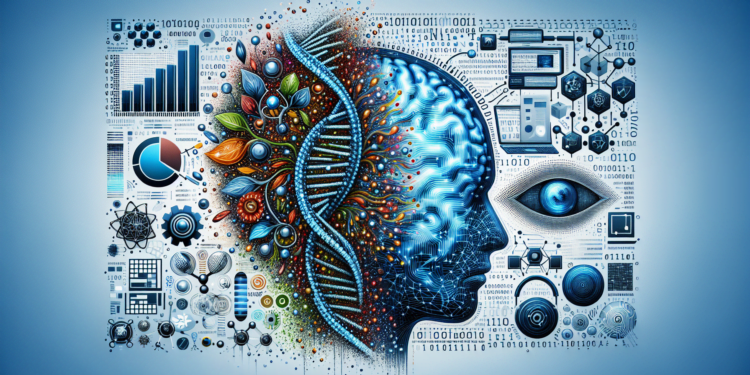Evolutionary learning is an intriguing and foundational field of Artificial Intelligence that emulates biological evolution to solve complex computational problems. This branch of AI is based on the principle of natural selection: the most suitable solutions survive and reproduce while the less adapted ones are discarded.
Genetic Algorithms (GA)
GAs are a class of optimization and search algorithms that use the heuristics of natural evolution—such as mutation, recombination, and selection—to generate solutions for optimization and search problems. For example, in the realm of swarm intelligence, exemplified by the collective behavior of ant colonies or schools of fish, GAs have proved useful for discovering optimal routes in logistics problems and robot coordination.
Evolutionary Strategies (ES)
ES are similar to GAs, but place more emphasis on mutation rather than recombination. Designed for continuous optimization problems, ES perform mutations with a certain “intensity” that adjusts during the evolutionary process, providing a robust method for tuning parameters in complex systems such as those found in robotics and process control.
Genetic Programming (GP)
GP moves away from parameter optimization to focus on structural evolution. Here, solutions are represented as complex data structures, such as expression trees, which can mutate and recombine to form new programs or pieces of code. GP allows for the discovery of new algorithms or the improvement of existing ones in various fields, including data mining and the generation of predictive models.
Classifier Systems (CS)
CS are based on the idea of evolving sets of rules to classify and make decisions. These systems learn from environments through a stimulus-response cycle and are refined using evolutionary principles. They are applied in resource management, adaptive control, and fields where decision-making can be improved through experimentation and adaptation.
Particle Swarm Optimization (PSO)
PSO, while not strictly an evolutionary algorithm, shares the philosophy of emergent solutions from interactions of simple individuals. The “particles” in PSO move through the search space influenced by their own best known position and that of the group, thus adjusting their trajectory in search of optima. It is useful in multidimensional optimization, common in neural network design and complex model fitting.
Neuroevolutionary Networks
Neuroevolutionary networks combine evolutionary algorithms with neural networks to optimize their architecture and weights without the use of traditional backpropagation. This method can be invaluable in environments where the gradient cannot be efficiently calculated, in reinforcement learning, or in situations that require continuous adaptation.
Hyper-heuristics
Hyper-heuristics are a level of abstraction beyond heuristics and metaheuristics, focused on selecting or generating heuristics to solve optimization problems. By using evolutionary principles to guide the selection of heuristics, hyper-heuristics can discover novel solution methods, overcoming the difficulty of manually designing algorithms for complex problems.
Each technique mentioned is adapted to different types of problems and scenarios. There is a trend toward hybridizing evolutionary methods with other areas of AI, such as deep learning, thereby enhancing the generation of creative and innovative solutions in fields like personalized medicine, engineering designs, and finance.
The combination of these techniques with advances in hardware, such as dedicated graphics processing units (GPUs) or specialized AI chips, now allows the experimentation and application of evolutionary learning on an unprecedented scale. The use of cloud computing and distributed architectures for parallel evolution opens the doors to solving problems that were previously unapproachable due to computing limitations.
Case studies exemplify the application of these techniques in the real world. For example, the evolution of real-time fraud detection algorithms or the optimization of trading strategies using GP are just some of the practical applications of the combination of evolution-based artificial intelligence and complex systems.






















